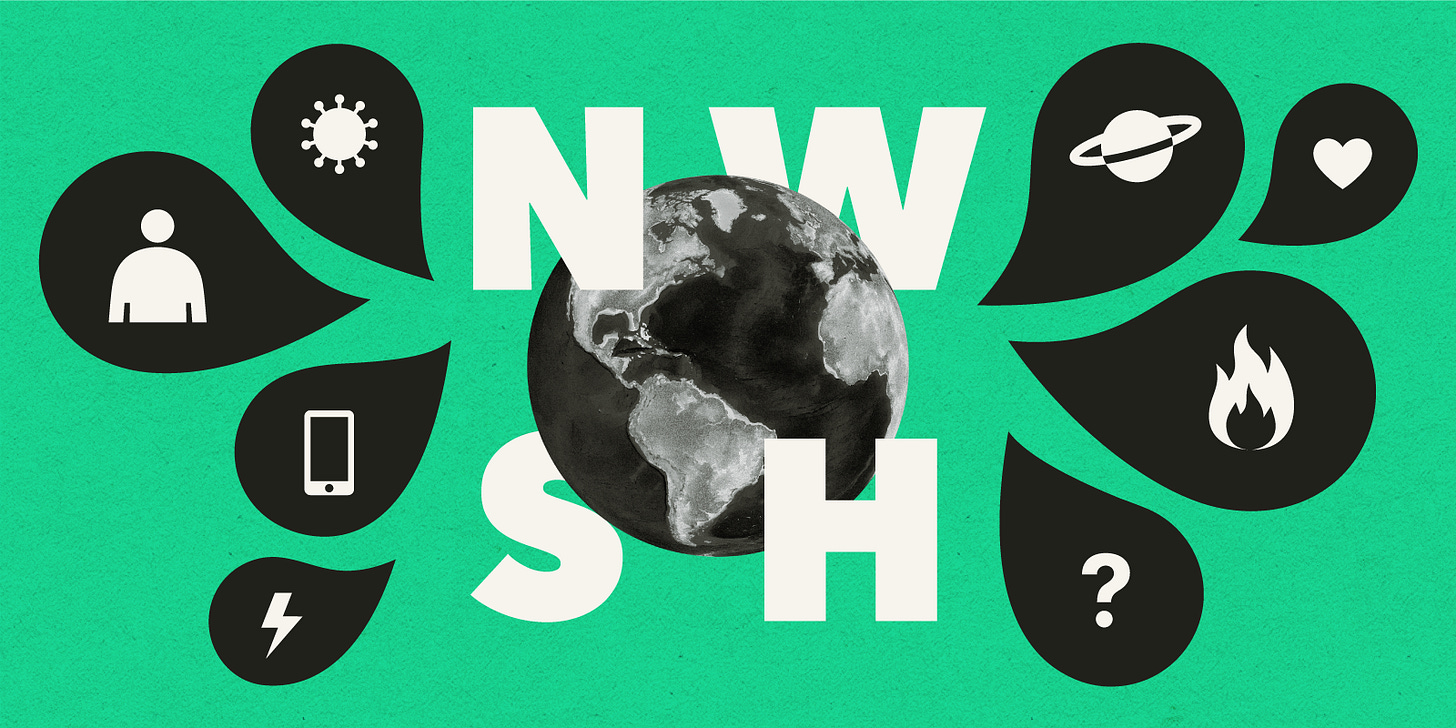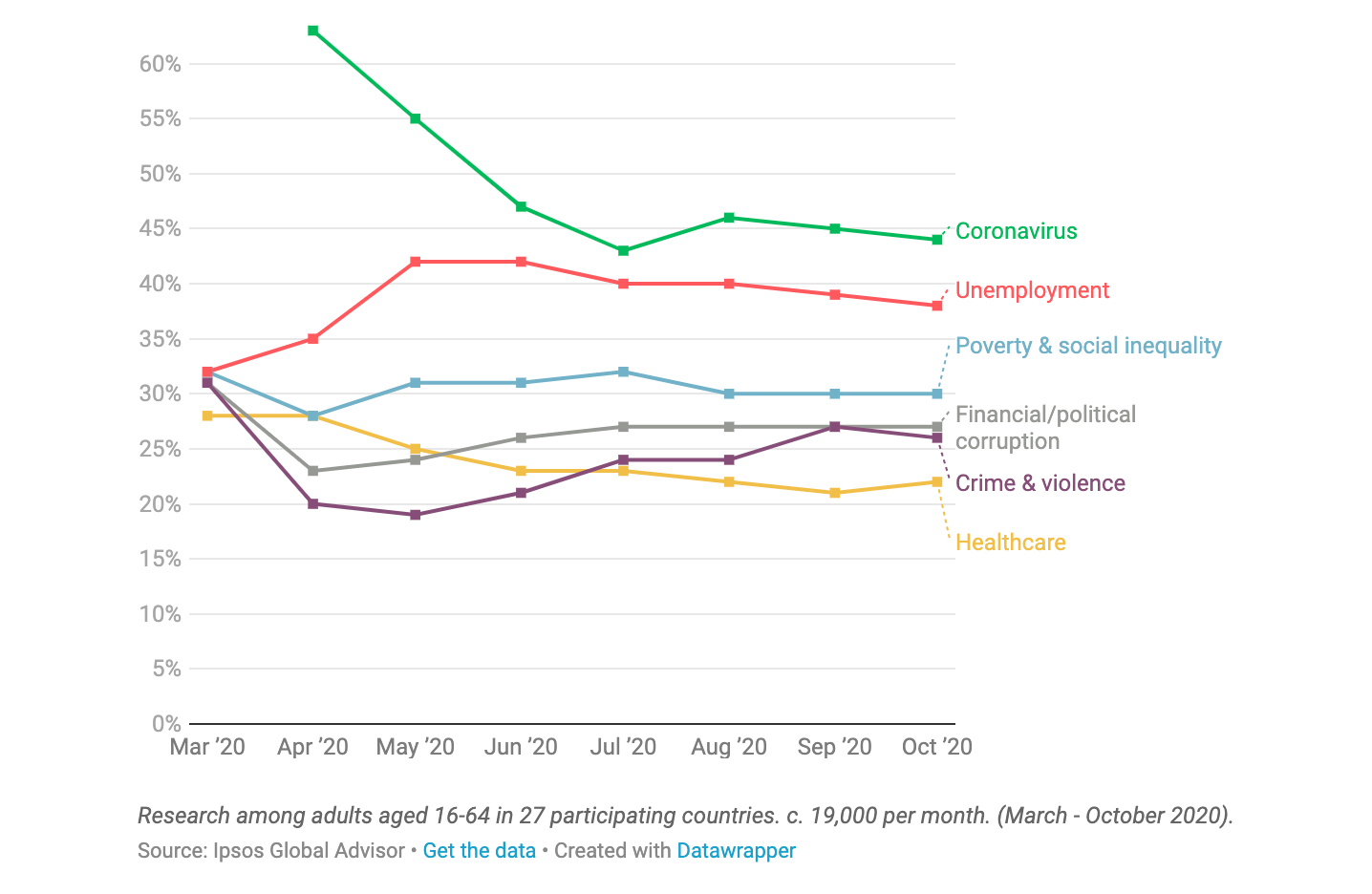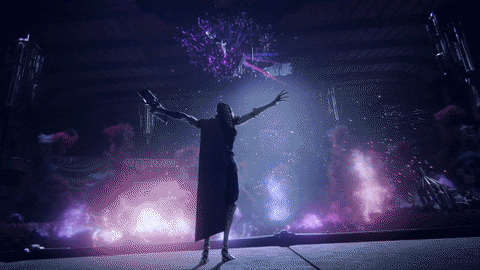New Week Same Humans #11
Uber wins big on US election day. Virtual pop stars smash it in Shanghai. Plus more news and analysis from this week.
Welcome to the Wednesday update from New World Same Humans, a newsletter on trends, technology, and society by David Mattin.
If you’re reading this and you haven’t yet subscribed, then join 14,000+ curious souls on a journey to build a better shared future 🚀🔮
💡 This week’s Sunday essay dived into an emerging trend set to reshape business and media. Go here to read Virtual Humans, and How Weird Becomes Mainstream.💡
This week, Californian voters make a big decision (not that one).
Meanwhile, virtual girl group K/DA rewrite the rules of live music in Shanghai.
Plus: how a bald linesman and an AI camera ruined a football match for spectators. And two chatbots have the world’s most awkward first date.
Let’s do this!
🚗 California voters say Uber drivers are not employees
At the time of writing, the US Presidential election is still undecided. Clearly, I don’t want to make a premature call on the result. I mean, who would even consider doing that? 🤯
In the meantime, America’s day at the polls brought two decisions we can examine.
Californian voters approved Prop 22, which exempts gig economy platforms from having to classify workers as employees. Uber, Lyft and other Valley firms spent over $200 million on a campaign intended to sway voters. It worked; around 58% voted in favour. That means Uber drivers will continue to be classed as contractors, with no rights to a minimum wage, paid sick live, and other benefits.
Meanwhile, citizens in Portland, Maine, voted to ban the use of facial recognition by police and other city agencies. The move follows similar bans by Boston, San Francisco, and Portland, Oregon.
⚡ NWSH Take: Uber knew this was huge for them; Prop 22 became a symbolic battle for the future of the gig economy. The $200 million they spent made this the most expensive ballot measure campaign in history. But winning has paid: Uber’s share price is up 14% today. // Drivers are denied benefits; Uber shareholders get richer. That’s a perfect encapsulation of everything critics say is wrong with the gig economy. // In NWSH #32 I wrote about another avenue for a gig economy revolution: the democratisation of no-code technologies that allow anyone to build a workable platform, which opens the way for an explosion of new gig economy co-ops. // The gig economy and facial recognition decisions are a reminder that the intersection of digital tech and politics is still in its infancy: expect much more ahead.
😰 Don’t worry be happy
Global market research company Ipsos released the October instalment of its rolling What Worries the World series.
Headline finding: people are less worried about coronavirus than they were, but its still the biggest issue. Concern over unemployment remains elevated.
Meanwhile, more than six in ten globally say their country is ‘on the wrong track’.
🦸 The NWSH community can supercharge you
Want to share news, ideas, and opinions on our shared future with a super-smart bunch? Or let the community know what you’re working on, and get fast feedback?
As a subscriber, you have access to the NWSH Slack Group. Inside, you’ll find insight professionals, founders, designers, strategists, marketers, AI researchers and more.
Join the conversation! Simply follow this link to join the NWSH Slack group today.
📥 A message from our partners
This email comes to you in partnership with Springwise!
The NWSH community is united by one belief: that together we humans can build a better shared future. That’s why I’m excited to announce our partnership with Springwise. They've been spotting the global innovations that matter since 2002, and I've long been a big fan.
Their excellent weekly curation of innovation intelligence is delivered each Wednesday. Subscribe now for free and join their growing community of thought leaders and positive change-makers.
Live events go hyper-real
Kpop giant SM Entertainment has been hyping the launch of a new group called aespa, which will contain both real and virtual members. Reaction has been mixed; some think it’s cool, others creepy.
This week’s Sunday essay was all about the rise of virtual humans. I mentioned K/DA, the virtual girl group created by Riot Games. Every member of the group is a playable character within the Riot Games multiplayer online battle game League of Legends.
Here are K/DA playing live at the opening ceremony for the 2020 League of Legends World Championship a few days ago. They make their appearance at around 55 seconds. It’s pretty wild.
⚡ NWSH Take: In eight months, the pandemic has accelerated us through a decade’s worth of innovation around live events. Remember the WWE Thunderdome with fake crowd noise and banks of Zoom screens? // The next step? As seen above, the evolution of live events is intersecting with another powerful trend: the rise of virtual humans. Virtual pop stars aren’t new; think Japan’s Hatsune Miku or the UK’s Gorillaz. But now, they’re going mainstream and delivering a far more sophisticated live experience. // The boundaries between live and digital experiences has been shattered, and it’s never coming back. Ask yourself: what new opportunities does this present when it comes to the way you project your brand into the world?
🗓️ Also this week
💌 Older women in China are falling in love with fake celebrities on TikTok. Chinese seniors are rapidly embrace the internet but don’t always know how to stay safe, says the South China Morning Post.
👴 An AI camera ruined a football game for spectators when it continually mistook a lineman’s bald head for the ball. Scottish team Inverness Caledonian Thistle deployed the camera system to livestream their match against Ayr United.
🔭 The Hubble telescope spotted an asteroid worth 70,000 times more than the entire global economy. Psyche 16 is made of iron and nickel and valued at $10,000 quadrillion.
🇨🇳 President Xi of China said the country is open for business. Speaking at the China International Import Expo, Xi said China will import goods worth $22 trillion worth over the next decade.
✈️ The pandemic has created a private jet boom among Europe’s middle class. A typical 90-minute flight from the UK to the south of France starts from £6,000.
💎 A British entrepreneur says he can make diamonds out of thin air. Dale Vince says his lab-grown stones are the world’s first ‘zero impact diamond’.
🤖 Two AI chatbots are having the world’s most awkward date on Twitch. Blenderbot and Kuki are part of a competition called Bot Battle; human viewers get to vote on who produces the most convincing chat.
📉 People want to know why the US Presidential election polls were so wrong. This Twitter thread floats some early thinking.
🌆 These stunning images show how the world’s great cities would look if lit only by the stars. Artist Thierry Cohen says he wanted to draw attention to the way light pollution stops us seeing the night sky.
💰 A shady stash of bitcoins worth $1 billion has changed hands. Linked to the defunct darknet platform Silk Road, the pile has lain untouched since 2013. But someone transferred the full amount to a new address on Tuesday.
🤔 Microsoft pledged to go carbon neutral but also donated to a politician who denies climate change. A new report from Bloomberg says many other firms are up to the same tricks.
🌍 Humans of Earth
Key metrics to help you keep track of Project Human.
🙋♀️ Global population: 7,823,210,425 and counting
🌊 Earths currently needed: 1.7711052345
🗓️ 2020 progress bar: 85% complete
📖 On this day: On 4 November 1922, British archaeologist Howard Carter finds the entrance to Tutankhamun's tomb in the Valley of the Kings, Egypt.
We are legend
Thanks for reading this week.
Goal for 2021: a New World Same Humans hyper-real live event with dancing virtual humans. I’ll get to work on my digital avatar. Expect fireworks like:
In the meantime, I’m working on another goal. That is, to continue to grow the amazing community that NWSH has become. We started as a small tribe back in January; today we encompass more than 14,000 smart people all over the world.
You can help our community expand. All you have to do is share!
So if you found today’s instalment valuable, why not take a second to forward this email to one person – a friend, relative, or colleague – who’d also enjoy it? Or share New World Same Humans across one of your social networks, and let others know why you think it’s worth their time. Just hit the share button:
I’ll be back on Sunday. Until then, be well,
David.
P.S Huge thanks to Nikki Ritmeijer for the illustration at the top of this email. And to Monique van Dusseldorp for additional research and analysis.




